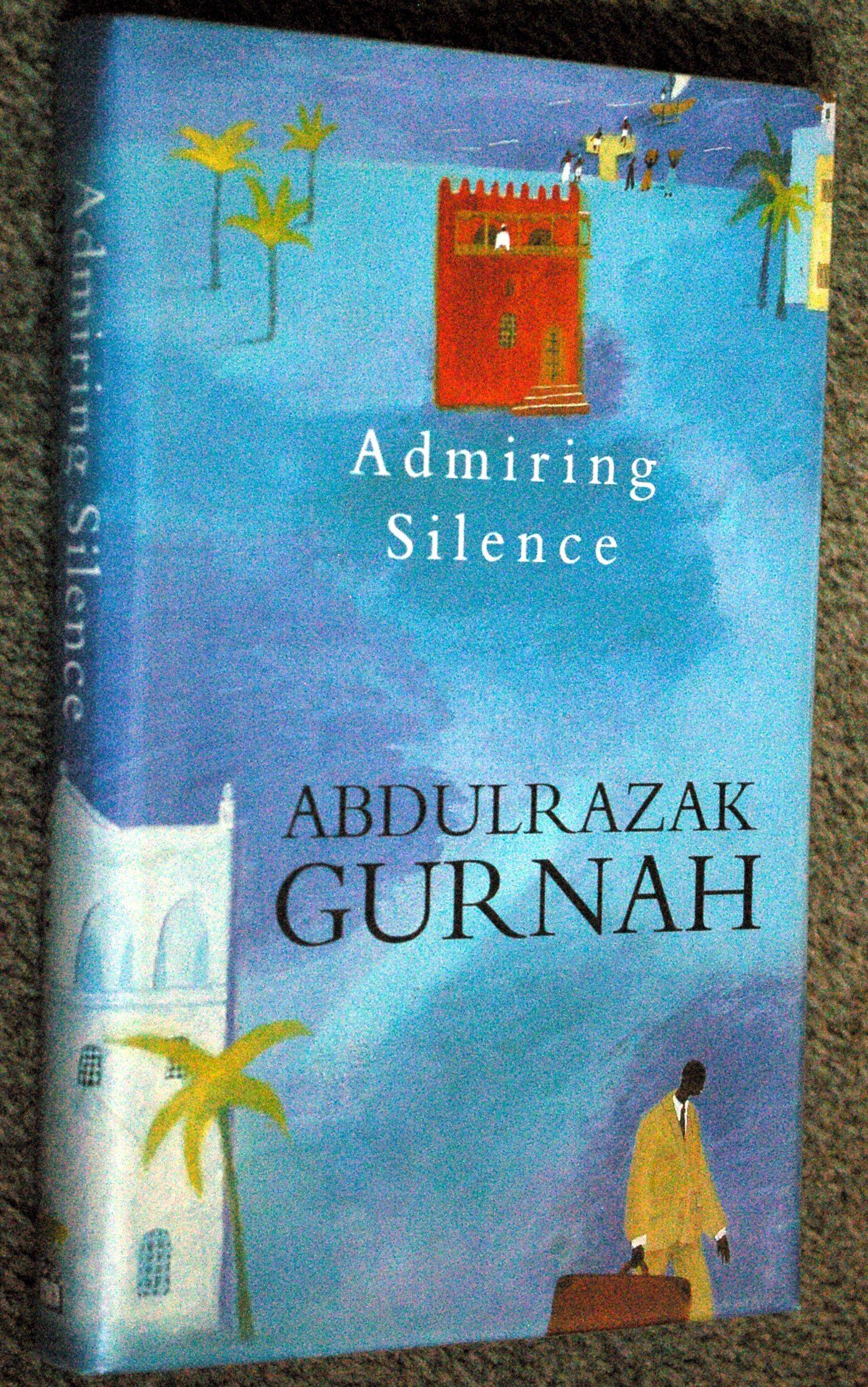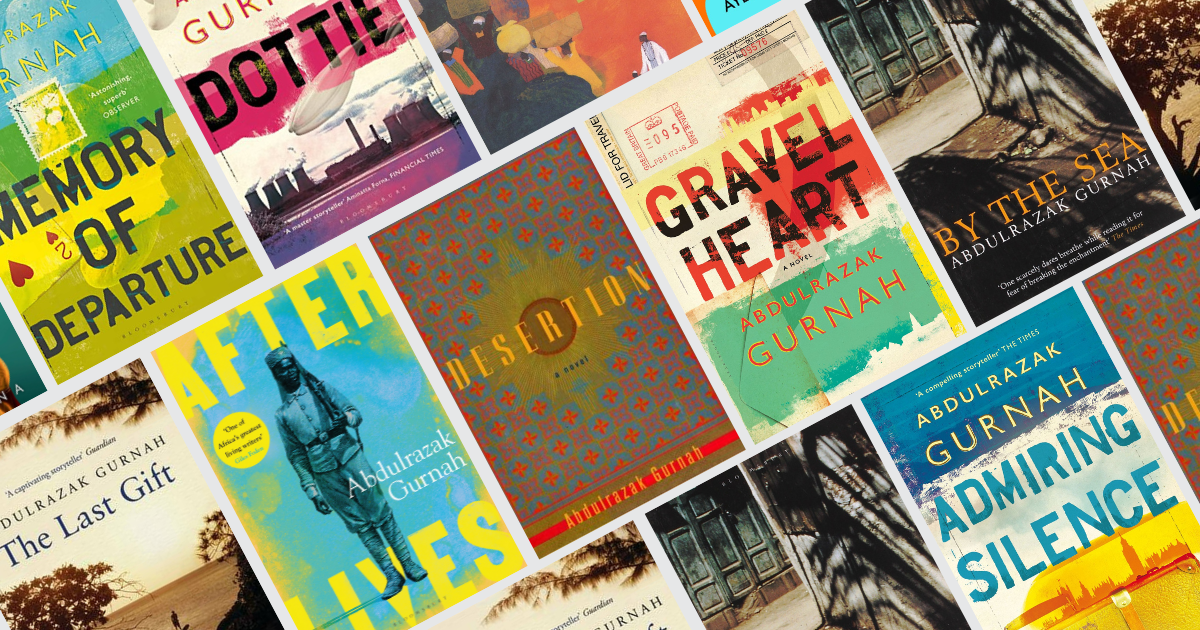BLACK HELEN OF TROY
If true the casting of a Black woman, Lupita Nyong’o, by the director Christopher
This book respects the complexities of first hand experience of an immigrant without overlooking, or failing to condemn with witty irony, the micro aggressions and extant racism from some of the denizens of his host nation. In those who experience its events history is not a narrative of uninterrupted virtue, nor is it an entirely sordid tale. Hence they often embrace its complexity, and the novel is the only province that can express the naunces of their sentiment. In Admiring Silence this is done expertly. Abdulrazak Gurnah's pen is a sword that swings in all directions to weed off the barnacles of prejudice to exculpate the real experience of immigrants:
Just stand on the banks of the Thames anywhere between Blackfriars Bridge and Westminster Bridge and look north, and see if your heart is not filled with awe at the labour that has gone into “constructing that: the huge spires and great offices and colonnaded vaults and sprawling cloisters and rich pavilions and prim mansions and gilded bridges festooned with lights. Then let your eye wander farther afield, and there are the factories and warehouses and mechanized farms and model towns and chapels, and museums bursting with booty from other people’s broken histories and libraries sprawling with books congregated over centuries …

The book employs, too well, the allegory of interracial marriage without pushing it too far. An African immigrant in England (Gurnah is deliberately sensitive of the Irish and Scottish colonial experiences against the English, hence he avoids using the terms of Britain or the UK) marries into the culture and mores of his host nation. The book shows the inevitability of disappointment that leaves him abandoned in nowhereland: shunned as a cur by his own culture while being constantly belittled as 'never enough' by the adopted one. Recently, to show the more things change the more they stay the same, in her magnificent book, Assembly, Natasha Brown, updated this theme for our era (Admiring Silence was first published in 1996). Admiring Silence is a story of middle age man watching his life disintegrate from the seams. The story is told mostly as flashbacks and thoughts of his active mind. His health is also disintegrating ('…the buggered heart …') which his doctor, condescendingly says Caribbean (he is African) hearts has a predilection of; “Afro-Caribbean people have dickey hearts,’ he said, smiling to give me courage at such a distressing time, ‘and they are prone to high blood pressure, hypertension, sickle-cell anaemia, dementia, dengue fever, sleeping sickness, diabetes, amnesia, choler, phlegm, melancholy and hysteria. ”
His love for his adopted country, England, slowly seeps away. When he visits home for the first time after decades he gets a clear realisation that one can never go home again due to, well blocked drainage and sewerage he adopts so well here as a metaphor to depict the general depletion of post colonial African states. Here's the taste of Gurnah double edged sword:
I liked to dwell on differences – I still do – to reflect on how hubris and greed have eaten away the foundations without discrimination, and how the continent on which we live is now sliding on pools of slime and waste and sleaze, and how cynicism and exhaustion are condemning all of us to live on bullshit, and how the over-fed can sneer unreflectingly at the ones they have browbeaten and defeated. Emma [his wife] called me narcissistic – or as an embellishment she decribed what I did as the narcissism of minor difference. She always was good with phrases, although this one she picked up somewhere. When she found a little phrase, she polished it and rubbed it until it was hard and glinting.
The first parts of this novel are my favourote. The first part of the book is an ironic castigation of dealing with domestic politics and the in-laws, his father-in-law in particular who love to hear colonial conquest stories about how Britain brought African countries out of darkness. In humour he extols the virtues of the British empire and make as if to lament its passing. The humour, wit and irony of this section is told through wry and often pleasing personality of the narrator. It is also the strongest section that works very well with its quiet wisdom from splendid observational powers that refuses to flare up in anger despite all provocations. When it touches on general politics it does so with a sense of petulant impatience. From a sparse literary voice with a stern tone of limpid and clinical detachment that's common in most Garnah's writings this is delivered in pleasing literary prowess.

To catch a break from the 'fanged love' of his wife and worries about failing health he decides to travel back to his home in Africa. The island is never really named but is easy to spot as the author's former home, Zanzibar, with all the references to the mainland (Tanzania). There things follow the predictable path as he ends up living in nostalgia around a confusing curiosity of his relatives, who, after many decades, don't know how to relate to him. Their solution is to bring him back to his own people by marry him to a seventeen year old who wants to study medicine in England. This reminds him the condescending comment of Emma, his English wife by cohabitation:
If it wasn’t for us, you’d have been marrying your third wife by now, a seventeen-year-old kid who should have been thinking of her homework instead of the tired penis that was coming to ruin her life,’ she said. ‘That’s what you would’ve been up to by now. Admit it.’
At home he begins to remember the conditions of his fleeing the land against the background of what he calls the Riots. Hardly anything in the country works anymore, which he regards as a blockage of post colonial greed with perennial Its Our Time To Eat from successive political leaders replace themselves by bloody coups, rigged elections of pretence democracies and all. The lack of proper ablution is what frustrates him most. In the end, besides taking early evening walks to the beach, that horrifies his relatives for fear of his being mugged, he spends most of his time listening to the radio and watching the prime minister bater platitudes and false proses on TV. He tries to rediscover the boy in him he was with at primary school. Eventually the Prime Minister upon hearing he is back from the UK invites him to come back for good from England, offers him a guaranteed lucrative civic job. He turns him down, reveals for the first time to his family that he is married to an English woman almost at the same time, which confounds them into realising he was forever lost to them like his father who was a teacher also. One day, instead of going to his job in class, his father went to the docks to stow away on a ship bound for Europe. Nobody heard anything of him after. They felt he too had made himself into a lying embarrassment to everyone with proverbial suspicions of an apple not falling far from the tree and all. Some of his relatives start treating him with undisclosed resentment from their impotent anger the same way post colonial African people do to Western nations while envying what they have they feel some of was robbed from bei g generation wealth of their own countries. That double edged sword again:
“What’s the point of dwelling on these things, anyway?’ she [Emma] said. ‘You only make yourself feel impotent and oppressed, as if in some way you are uniquely victimized by history. We keep talking of horrible events that have happened, but that doesn’t seem to stop them happening again. It’s just that we got there first with the steam engine and the cotton ginny or whatever. So it fell to us to do the dirty deeds.’
And our part of the deal was to be colonized, assimilated, educated, alienated, integrated, suffer clashes of culture, win a flag and a national anthem, become corrupt, starve and grumble about it all. It’s a good deal, and we perform our parts to the utmost of our humble talents, but not adequately enough to satisfy over-sensitive patriots who feel put upon by hysterical strangers squatting dangerously inside the gates. They got the loot and we got the angst, but even that is not good enough for this lot. So they work up their beastly plebeians with rousing folk-tales of past glory and present squalor, provoke an incident or two, perhaps an unavoidable death here and there, and back to the library shelves for more tales of resolution in the face of stubborn circumstance and the declamation of the undiminishing “coda: the Triumph of the West. And all the while the hubshi find it harder to resist the tempting and shameful suggestion that they inhabit a culture of grievance, that they have grown dependent on the corrupting smell of their wounds, that they dare not face the truth of their limitations, that they are not up to whatever it is that would release them from their bondage to historical inertia.”

To his own embarrassment he discovers that he still loves his wife though he knows she probably will leave him when he gets back. With the same breath his morality has gone beyond the ability of succumbing to the seduction of ruining a seventeen year old girl's life with his flabby tired penis by marrying her even though she too hunkers towards the arrangement because it means fulfiling her long held ambition of studying medicine in England. In the end he is also cruel a d useless through his own kindness also. Everyone, including himself, feels he never really commits to anything, never assertive about anything even where is crucial for him to be; he's just a dangling man. His stepfather is the one who pushed him to exile in England. His uncle made him study for A Levels for university and wanted him to study education though with his great marks he felt he could have done a much more lucrative degree. He chose what they saw as a mediocre career of teaching English like his father whose life doomed him into this fate. His wife is the one who led him into their affair when they both worked on a restaurant; she became irritated by his non aggressive manner in tackling her parent's micro racism with humour instead of angee, etc.
With his tail between his legs he goes back to England, sits next to a beautiful Indian lady, Ira, with familiar melancholic feelings of 'disappointed love' from a ten year marriage to an Englishman. They hit it off and eventually exchange numbers. At home his wife continues refusing to make love to him before leaving two weeks after. He sits around listening to music and crying on his beer (ram and coke) feeling sorry for himself. His daughter joins him on this ritual until she becomes revolted by how pathetic his life has become and decide to move in with her varsity mate. She calls him now and then, but his primary purpose of keeping his phone on his lap is the hope of mustering enough courage to call Ira, whom, after weeks, he's still has managed to because he's afraid to disturb the 'fragile silence' of his current state.
His refusal to be angry robs him of proper clarity justifiable anger sometimes brings. This book is almost antidotal to Elena Ferrante's The Days of Abandonment. The greater sadness here is in noticing how his pacifist position is exactly what is bringing festering the poison that hastens the end of his 'buggered heart'. Then again, we had been warned at the begingining:
So your huffing and puffing is nothing more than a temper tantrum, and your indignant fictions are only corrosive fantasies.